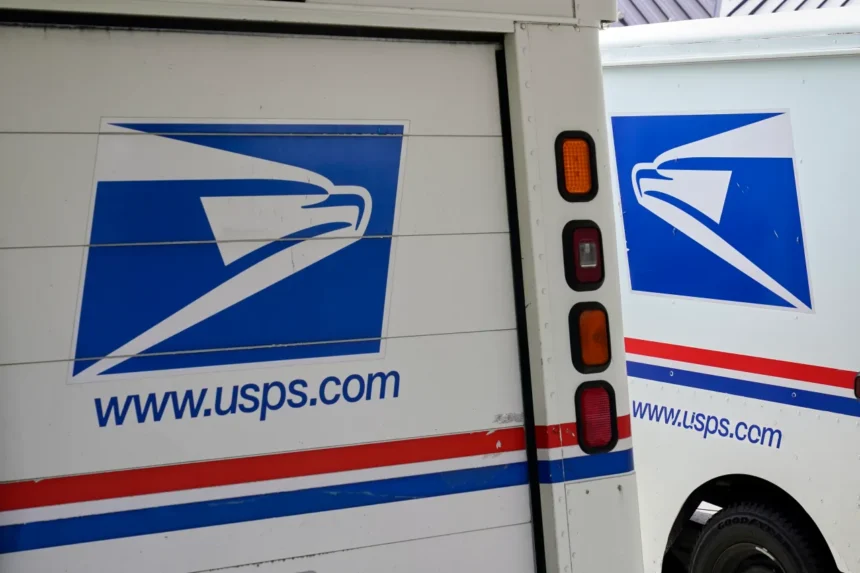In a significant case that has sent ripples throughout the postal service and federal agencies, a USPS postmaster pleads guilty to federal charges involving corruption and fraud. This incident sheds light on the ongoing challenges within the U.S. Postal Service (USPS) and raises serious concerns about the integrity and reliability of public services. This article explores the background of the case, the specific allegations, the legal consequences, and what the guilty plea means for the USPS and its stakeholders.
Who is the USPS Postmaster?
The United States Postal Service (USPS) appoints postmasters to manage and oversee operations at local post offices. These officials ensure that mail delivery runs smoothly, manage staff, handle customer issues, and maintain service standards in their assigned regions.
The position of a postmaster is one of high responsibility, and any misconduct in the role directly affects public trust in the postal system. Therefore, the recent news that a USPS postmaster pleads guilty to charges involving illegal activities has raised concerns among citizens and authorities.
Details of the Case: Why the USPS Postmaster Pleads Guilty
The legal case revolves around allegations that the postmaster engaged in fraudulent activities that violated both federal and USPS regulations. According to official reports, the postmaster in question was accused of abusing their position for personal gain. The misconduct ranged from theft of government funds to tampering with the mail, and in some cases, accepting bribes.
One of the most critical allegations was that the postmaster misused postal resources, either by manipulating employee timesheets or facilitating mail fraud schemes. The guilty plea indicates that the evidence against the individual was strong enough to avoid a drawn-out trial.
Legal Charges and Consequences
The postmaster’s decision to plead guilty comes with serious legal consequences. The charges include:
- Mail Fraud: Tampering with or misusing mail for personal or financial benefit.
- Misappropriation of Government Property: Using USPS resources for purposes outside official duties.
- Bribery or Accepting Illicit Payments: Allegations of taking bribes to influence the delivery process or provide unauthorized access to postal services.
Federal authorities take these charges very seriously. As part of the plea deal, the postmaster may face:
- Jail Time: Depending on the severity of the offenses, the sentencing could range from a few years to decades in federal prison.
- Fines: The postmaster could be liable for significant monetary penalties.
- Restitution: The court may order repayment of stolen funds or compensatory damages to affected individuals or organizations.
- Probation: In some cases, the individual might receive a combination of jail time and supervised probation.
How the Case Unfolded
The investigation into the postmaster’s actions began when suspicious activities were reported by coworkers and USPS auditors. Routine audits of postal office operations often reveal discrepancies in financial records, employee behavior, and missing or delayed mail. In this case, investigators found sufficient evidence to warrant a full inquiry.
Federal investigators, including agents from the USPS Office of the Inspector General (OIG), uncovered patterns of misconduct. After gathering documents, interviewing witnesses, and monitoring internal operations, the postmaster was confronted with the evidence. Realizing the gravity of the situation, the postmaster decided to cooperate with authorities and entered a guilty plea to reduce the penalties.
Impact on USPS Operations and Public Trust
The revelation that a USPS postmaster pleads guilty to fraudulent activities has had a significant impact on both the postal service’s reputation and public trust. Many Americans rely on USPS for essential services such as delivering mail, processing voter ballots, and handling packages. Cases like this raise questions about whether the postal service has adequate internal controls to prevent such misconduct.
In response to this incident, USPS officials have emphasized the importance of transparency and accountability. Measures are being put in place to prevent similar issues in the future, such as:
- Stricter Internal Audits: Increasing the frequency and depth of operational reviews.
- Employee Training: Reinforcing the importance of ethical behavior and adherence to federal policies.
- Whistleblower Protections: Encouraging employees to report any suspicious activity without fear of retaliation.
Public and Government Reaction
This case has drawn attention from both the public and lawmakers. Some members of Congress have raised concerns about whether the USPS has sufficient oversight mechanisms to prevent corruption among senior staff. Calls for enhanced auditing procedures and tighter regulations have intensified in the aftermath of this incident.
On the public side, there has been a mixture of outrage and disappointment. Many people rely on the postal service for secure communication and timely package deliveries. News that a postmaster abused their position has left citizens questioning the reliability of the system.
The USPS, recognizing the damage to its reputation, has issued public statements promising reforms. Leadership within the organization is working closely with federal authorities to ensure accountability and restore public confidence.
What Happens Next?
Following the guilty plea, the focus shifts to the court’s sentencing decision. The judge will consider several factors, including the severity of the offenses, the postmaster’s cooperation during the investigation, and any previous criminal history. Depending on these considerations, the postmaster could receive a lighter sentence in exchange for the guilty plea.
Additionally, the USPS will continue reviewing internal policies to prevent future cases of misconduct. Strengthening employee oversight and increasing transparency in financial reporting will be key elements of these reforms.
Conclusion
The case where a USPS postmaster pleads guilty serves as a cautionary tale about the importance of accountability in public service. It underscores the need for rigorous oversight, ethical behavior, and a strong commitment to public trust within the USPS and similar organizations.
While the guilty plea provides closure to the investigation, it also opens up conversations about the systemic changes required to prevent future incidents. The USPS must not only address the issues revealed by this case but also work proactively to ensure that the public can continue to rely on its services without fear of corruption.
As this story develops, all eyes will be on the court’s sentencing decision and the USPS’s efforts to rebuild trust. For now, the guilty plea sends a clear message: misconduct and corruption within public service will not be tolerated, and those responsible will be held accountable.







